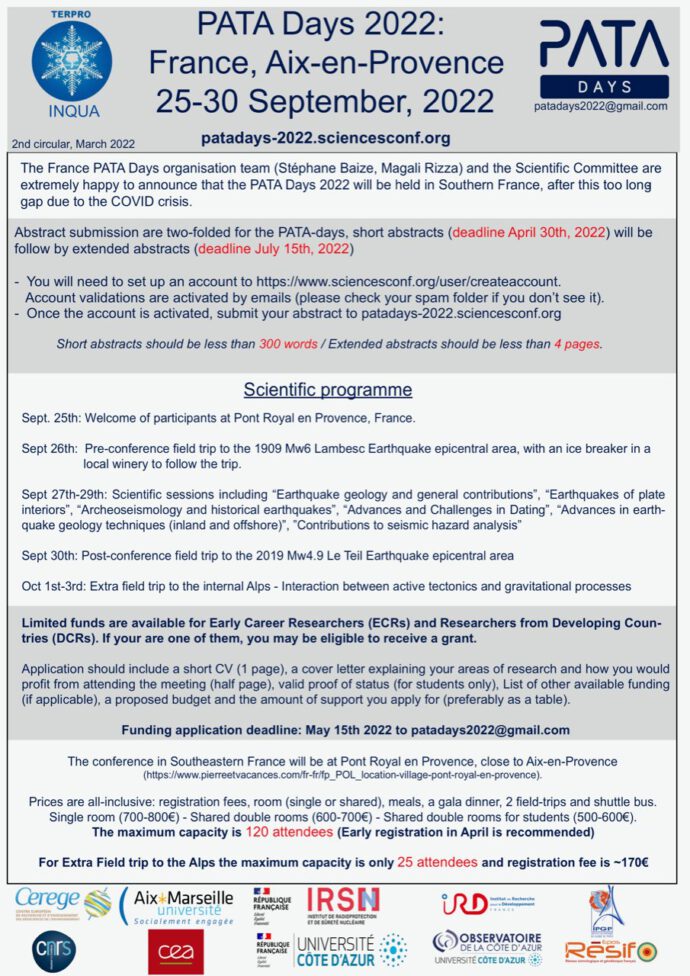INQUA TERPRO‘s project Lemon will run a winter school on “Active Tectonics And Climate Change Driven Landscape Evolution” from 16-19 January, 2023, in Palermo, Sicily.
- During the 16th and 17th of January, there will be talks by young and experienced researchers. Attendants are invited to share research and gather helpful tips and new collaborations through Pico-Talks (a 5-minute speech followed by an interactive Q&A session).
- During two days of fieldwork, experienced researchers will show crucial locations in western Sicily (the 18thand 19th of January).
To date, scheduled field trips are:
- Relative sea-level changes evidence in the Vito Peninsula (led by Fabrizio Antonioli);
- Active tectonics and its interaction with sea level changes in South Western Sicily (led by Luigi Ferranti & Pierfrancesco Burrato);
- Archaeo-seismological evidence of historical earthquakes within the Archaeological Park of Segesta (led by Carla Bottari).
Please follow the link for detailed information on the Winter School:
https://drive.google.com/file/d/1lU2-IeqFn5EX7J4s2hSO0wkLu8OXTJ5f/view?usp=sharing
more

